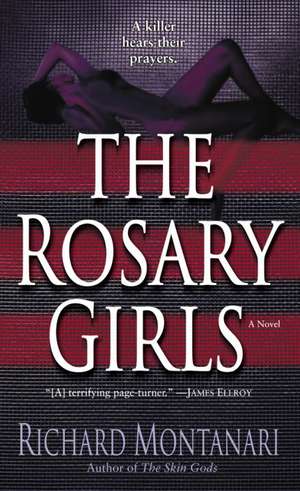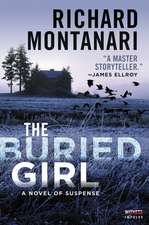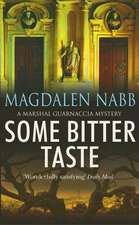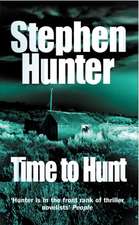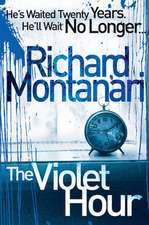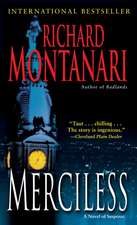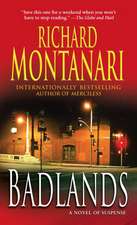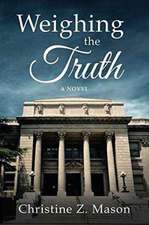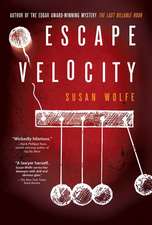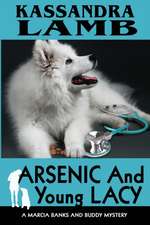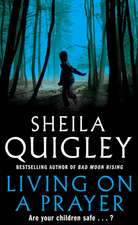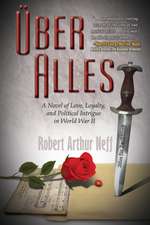The Rosary Girls
Autor Richard Montanarien Limba Engleză Paperback – 31 ian 2006
Sprawling beneath the statue of William Penn, Philadelphia is a city of downtrodden crack houses and upscale brownstones. Somewhere in this concrete crazy quilt, one teenage Catholic girl is writing in her diary, another is pouring her heart out to a friend, and yet another is praying. And somewhere in this city is a man who wants these young women to make his macabre fantasy become reality. In a passion play of his own, he will take the girls–and a whole city–over the edge.
Kevin Byrne is a veteran cop who already knows that edge: He’s been living on it far too long. His marriage failing, his former partner wasting away in a hospital, and his heart lost to mad fury, Byrne loves to take risks and is breaking every rule in the book. And now he has been given a rookie partner. Jessica Balzano, the daughter of a famous Philly cop, doesn’t want Byrne’s help. But they will need each other desperately, since they’ve just caught the case of a lifetime: Someone is killing devout young women, bolting their hands together in prayer, and committing an abomination upon their otherwise perfect bodies.
Byrne and Balzano spearhead the hunt for the serial killer, who leads them on a methodically planned journey. Suspects appear before them like bad dreams–and vanish just as quickly. And while Byrne’s sins begin to catch up with him, and Balzano tries to solve the blood-splattered puzzle, the body count rises. Meanwhile, the calendar is approaching Easter and the day of the resurrection. When the last rosary is counted, a madman’s methods will be revealed, and the final crime will be the one that hurts the most.
Relentlessly paced and vividly told, The Rosary Girls is a smart, emotionally complex, fiercely gripping thriller from an author who takes chances, breaks new ground, and leaves readers haunted and moved long after the last page is turned.
From the Hardcover edition.
Preț: 46.99 lei
Nou
Puncte Express: 70
Preț estimativ în valută:
8.99€ • 9.27$ • 7.59£
8.99€ • 9.27$ • 7.59£
Carte indisponibilă temporar
Doresc să fiu notificat când acest titlu va fi disponibil:
Se trimite...
Preluare comenzi: 021 569.72.76
Specificații
ISBN-13: 9780345470966
ISBN-10: 0345470966
Pagini: 407
Dimensiuni: 110 x 177 x 29 mm
Greutate: 0.2 kg
Editura: BALLANTINE BOOKS
ISBN-10: 0345470966
Pagini: 407
Dimensiuni: 110 x 177 x 29 mm
Greutate: 0.2 kg
Editura: BALLANTINE BOOKS
Notă biografică
RICHARD MONTANARI is a novelist, screenwriter, and essayist. His work has appeared in the Chicago Tribune, Detroit Free Press, Cleveland Plain Dealer, and scores of other national and regional publications. He is the OLMA-winning author of the internationally acclaimed thrillers Kiss of Evil, Deviant Way, and The Violet Hour–all published in more than twenty countries. Visit the author’s website at www.richardmontanari.com.
From the Hardcover edition.
From the Hardcover edition.
Extras
Palm Sunday, 11:55 PM
There is a wintry sadness about this one, a deep-rooted melancholy that belies her seventeen years, a laugh that never fully engages any sort of inner joy.
Perhaps there is none.
You see them all the time on the street; the one walking alone, books clutched tightly to her breast, eyes cast earthward, ever adrift in thought. She is the one strolling a few paces behind the other girls, content to accept the rare morsel of friendship tossed her way. The one who baby-sits her way through all the milestones of adolescence. The one who refuses her beauty, as if it were elective.
Her name is Tessa Ann Wells.
She smells like fresh-cut flowers.
“I cannot hear you,” I say.
“. . . lordaswiddee,” comes the tiny voice from the chapel. It sounds as if I have awakened her, which is entirely possible. I took her early Friday morning, and it is now nearly midnight on Sunday. She has been praying in the chapel, more or less nonstop.
It is not a formal chapel, of course, merely a converted closet, but it is outfitted with everything one needs for reflection and prayer.
“This will not do,” I say. “You know that it is paramount to derive meaning from each and every word, don’t you?”
From the chapel: “Yes.”
“Consider how many people around the world are praying at this very moment. Why should God listen to those who are insincere?”
“No reason.”
I lean closer to the door. “Would you want the Lord to show you this sort of contempt on the day of rapture?”
“No.”
“Good,” I reply. “What decade?”
It takes a few moments for her to answer. In the darkness of the chapel, one must proceed by feel.
Finally, she says: “Third.”
“Begin again.”
I light the remainder of the votives. I finish my wine. Contrary to what many believe, the rites of the sacraments are not always solemn undertakings, but rather are, many times, cause for joy and celebration.
I am just about to remind Tessa when, with clarity and eloquence and import, she begins to pray once more:
“Hail Mary, full of grace, the Lord is with thee. . . .”
Is there a sound more beautiful than a virgin at prayer?
“Blessed art thou amongst women. . . .”
I glance at my watch. It is just after midnight.
“And blessed is the fruit of thy womb, Jesus. . . .”
It is time.
“Holy Mary, mother of God. . . .”
I take the hypodermic from its case. The needle gleams in the candlelight. The Holy Spirit is here.
“Pray for us sinners. . . .”
The Passion has begun.
“Now and at the hour of our death. . . .”
I open the door, and step into the chapel.
Amen.
Part One
Monday, 3:05 AM
There is an hour known intimately to all who rouse to meet it, a time when darkness sheds fully the cloak of twilight and the streets fall still and silent, a time when shadows convene, become one, dissolve. A time when those who suffer disbelieve the dawn.
Every city has its quarter, its neon Golgotha.
In Philadelphia, it is known as South Street.
This night, while most of the City of Brotherly Love slept, while the rivers flowed mutely to the sea, the flesh peddler rushed down South Street like a dry, blistering wind. Between Third and Fourth Streets he pushed through a wrought iron gate, walked down a narrow alleyway and entered a private club called Paradise. The handful of patrons scattered about the room met his gaze, then immediately averted their eyes. In the peddler’s stare they saw a portal to their own blackened souls, and knew that if they engaged him, even for a moment, the understanding would be far too much to bear.
To those who knew his trade, the peddler was an enigma, but not a puzzle anyone was eager to solve.
He was a big man, well over six feet tall, with a broad carriage and large, coarse hands that promised reckoning to those who crossed him. He had wheat-colored hair and cold green eyes, eyes that would spark to bright cobalt in candlelight, eyes that could take in the horizon with one glance, missing nothing. Above his right eye was a shiny keloid scar, a ridge of ropy tissue in the shape of an inverted v. He wore a long, black leather coat that strained against the thick muscles in his back.
He had come to the club five nights in a row now, and this night he would meet his buyer. Appointments were not easily made at Paradise. Friendships were unknown.
The peddler sat at the back of the dank, basement room, at a table that, although not reserved for him, had become his by default. Even though Paradise was settled with players of every dark stripe and pedigree, it was clear that the peddler was of another breed.
The speakers behind the bar offered Mingus, Miles, Monk; the ceiling: soiled Chinese lanterns and rotary fans covered in wood-grain contact paper. Cones of blueberry incense burned, wedding the cigarette smoke, graying the air with a raw, fruity sweetness.
At three-ten, two men entered the club. One was the buyer; the other, his guardian. They both met the eyes of the peddler. And knew.
The buyer, whose name was Gideon Pratt, was a squat, balding man in his late fifties, with flushed cheeks, restless gray eyes and jowls which hung like melted wax. He wore an ill-fitting three-piece suit and had fingers long-gnarled by arthritis. His breath was fetid. His teeth, ocher and spare.
Behind him walked a bigger man—bigger even than the peddler. He wore mirrored sunglasses and a denim duster. His face and neck were ornamented with an elaborate web of ta moko, the Maori tribal tattoos.
Without a word, the three men gathered, then walked down a short hallway to a supply room.
The back room at Paradise was cramped and hot, packed with boxes of off-brand liquor, a pair of scarred metal desks and a mildewed, ragged sofa. An old jukebox flickered carbon blue light.
Once in the room, door closed, the large man, who went by the street name of Diablo, roughly patted down the peddler for weapons and wires, attempting to establish a stratum of power. As he was doing this, the peddler noted the three-word tattoo at the base of Diablo’s neck. It read: Mongrel for Life. He also noticed the butt of a chrome Smith and Wesson revolver in the large man’s waistband.
Satisfied that the peddler was unarmed, and wore no listening devices, Diablo stepped away, behind Pratt, crossed his arms and observed.
“What do you have for me?” Pratt asked.
The peddler considered the man before answering him. They had reached the moment that occurs in every transaction, the instant when the purveyor must come clean and lay his wares upon the velvet. The peddler reached slowly into his leather coat—there would be no furtive moves here—and removed a pair of Polaroid pictures. He handed them to Gideon Pratt.
Both photographs were of fully clothed, precociously posed teenaged black girls. The one called Tanya sat on the front stoop of her row house, blowing a kiss to the photographer. Pink and white streamers cascaded from the handlebar grips. Alicia, her sister, vamped on the beach in Wildwood.
As Pratt scrutinized the photos, his cheeks flared crimson for a moment, his breath hitched in his chest.
“Just . . . beautiful,” he said.
Diablo glanced at the photos, registering no reaction. He turned his gaze back to the peddler.
“What is her name?” Pratt asked, holding up one of the photos.
“Tanya,” the peddler replied.
“Tan-ya,” Pratt repeated, separating the syllables, as if to sort the essence of the girl. He handed one of the pictures back, then glanced at the photograph in his hand. “She is adorable,” he added. “A mischievous one. I can tell.”
Pratt touched the photograph, running his finger gently over the glossy surface. He seemed to drift for a moment, lost in some reverie, then put the picture into his pocket. He snapped back to the moment, back to the business at hand. “When?”
“Now,” the peddler replied.
Pratt reacted with surprise and delight. He had not expected this. “She is here?”
The peddler nodded.
“Where?” asked Pratt.
“Nearby.” Gideon Pratt straightened his tie, adjusted the vest over his bulging stomach, smoothed what little hair he had. He took a deep breath, finding his axis, then gestured to the door. “Shall we?”
The peddler nodded again, then looked to Diablo for permission. Diablo waited a moment, further cementing his status, then stepped to the side.
From the Hardcover edition.
There is a wintry sadness about this one, a deep-rooted melancholy that belies her seventeen years, a laugh that never fully engages any sort of inner joy.
Perhaps there is none.
You see them all the time on the street; the one walking alone, books clutched tightly to her breast, eyes cast earthward, ever adrift in thought. She is the one strolling a few paces behind the other girls, content to accept the rare morsel of friendship tossed her way. The one who baby-sits her way through all the milestones of adolescence. The one who refuses her beauty, as if it were elective.
Her name is Tessa Ann Wells.
She smells like fresh-cut flowers.
“I cannot hear you,” I say.
“. . . lordaswiddee,” comes the tiny voice from the chapel. It sounds as if I have awakened her, which is entirely possible. I took her early Friday morning, and it is now nearly midnight on Sunday. She has been praying in the chapel, more or less nonstop.
It is not a formal chapel, of course, merely a converted closet, but it is outfitted with everything one needs for reflection and prayer.
“This will not do,” I say. “You know that it is paramount to derive meaning from each and every word, don’t you?”
From the chapel: “Yes.”
“Consider how many people around the world are praying at this very moment. Why should God listen to those who are insincere?”
“No reason.”
I lean closer to the door. “Would you want the Lord to show you this sort of contempt on the day of rapture?”
“No.”
“Good,” I reply. “What decade?”
It takes a few moments for her to answer. In the darkness of the chapel, one must proceed by feel.
Finally, she says: “Third.”
“Begin again.”
I light the remainder of the votives. I finish my wine. Contrary to what many believe, the rites of the sacraments are not always solemn undertakings, but rather are, many times, cause for joy and celebration.
I am just about to remind Tessa when, with clarity and eloquence and import, she begins to pray once more:
“Hail Mary, full of grace, the Lord is with thee. . . .”
Is there a sound more beautiful than a virgin at prayer?
“Blessed art thou amongst women. . . .”
I glance at my watch. It is just after midnight.
“And blessed is the fruit of thy womb, Jesus. . . .”
It is time.
“Holy Mary, mother of God. . . .”
I take the hypodermic from its case. The needle gleams in the candlelight. The Holy Spirit is here.
“Pray for us sinners. . . .”
The Passion has begun.
“Now and at the hour of our death. . . .”
I open the door, and step into the chapel.
Amen.
Part One
Monday, 3:05 AM
There is an hour known intimately to all who rouse to meet it, a time when darkness sheds fully the cloak of twilight and the streets fall still and silent, a time when shadows convene, become one, dissolve. A time when those who suffer disbelieve the dawn.
Every city has its quarter, its neon Golgotha.
In Philadelphia, it is known as South Street.
This night, while most of the City of Brotherly Love slept, while the rivers flowed mutely to the sea, the flesh peddler rushed down South Street like a dry, blistering wind. Between Third and Fourth Streets he pushed through a wrought iron gate, walked down a narrow alleyway and entered a private club called Paradise. The handful of patrons scattered about the room met his gaze, then immediately averted their eyes. In the peddler’s stare they saw a portal to their own blackened souls, and knew that if they engaged him, even for a moment, the understanding would be far too much to bear.
To those who knew his trade, the peddler was an enigma, but not a puzzle anyone was eager to solve.
He was a big man, well over six feet tall, with a broad carriage and large, coarse hands that promised reckoning to those who crossed him. He had wheat-colored hair and cold green eyes, eyes that would spark to bright cobalt in candlelight, eyes that could take in the horizon with one glance, missing nothing. Above his right eye was a shiny keloid scar, a ridge of ropy tissue in the shape of an inverted v. He wore a long, black leather coat that strained against the thick muscles in his back.
He had come to the club five nights in a row now, and this night he would meet his buyer. Appointments were not easily made at Paradise. Friendships were unknown.
The peddler sat at the back of the dank, basement room, at a table that, although not reserved for him, had become his by default. Even though Paradise was settled with players of every dark stripe and pedigree, it was clear that the peddler was of another breed.
The speakers behind the bar offered Mingus, Miles, Monk; the ceiling: soiled Chinese lanterns and rotary fans covered in wood-grain contact paper. Cones of blueberry incense burned, wedding the cigarette smoke, graying the air with a raw, fruity sweetness.
At three-ten, two men entered the club. One was the buyer; the other, his guardian. They both met the eyes of the peddler. And knew.
The buyer, whose name was Gideon Pratt, was a squat, balding man in his late fifties, with flushed cheeks, restless gray eyes and jowls which hung like melted wax. He wore an ill-fitting three-piece suit and had fingers long-gnarled by arthritis. His breath was fetid. His teeth, ocher and spare.
Behind him walked a bigger man—bigger even than the peddler. He wore mirrored sunglasses and a denim duster. His face and neck were ornamented with an elaborate web of ta moko, the Maori tribal tattoos.
Without a word, the three men gathered, then walked down a short hallway to a supply room.
The back room at Paradise was cramped and hot, packed with boxes of off-brand liquor, a pair of scarred metal desks and a mildewed, ragged sofa. An old jukebox flickered carbon blue light.
Once in the room, door closed, the large man, who went by the street name of Diablo, roughly patted down the peddler for weapons and wires, attempting to establish a stratum of power. As he was doing this, the peddler noted the three-word tattoo at the base of Diablo’s neck. It read: Mongrel for Life. He also noticed the butt of a chrome Smith and Wesson revolver in the large man’s waistband.
Satisfied that the peddler was unarmed, and wore no listening devices, Diablo stepped away, behind Pratt, crossed his arms and observed.
“What do you have for me?” Pratt asked.
The peddler considered the man before answering him. They had reached the moment that occurs in every transaction, the instant when the purveyor must come clean and lay his wares upon the velvet. The peddler reached slowly into his leather coat—there would be no furtive moves here—and removed a pair of Polaroid pictures. He handed them to Gideon Pratt.
Both photographs were of fully clothed, precociously posed teenaged black girls. The one called Tanya sat on the front stoop of her row house, blowing a kiss to the photographer. Pink and white streamers cascaded from the handlebar grips. Alicia, her sister, vamped on the beach in Wildwood.
As Pratt scrutinized the photos, his cheeks flared crimson for a moment, his breath hitched in his chest.
“Just . . . beautiful,” he said.
Diablo glanced at the photos, registering no reaction. He turned his gaze back to the peddler.
“What is her name?” Pratt asked, holding up one of the photos.
“Tanya,” the peddler replied.
“Tan-ya,” Pratt repeated, separating the syllables, as if to sort the essence of the girl. He handed one of the pictures back, then glanced at the photograph in his hand. “She is adorable,” he added. “A mischievous one. I can tell.”
Pratt touched the photograph, running his finger gently over the glossy surface. He seemed to drift for a moment, lost in some reverie, then put the picture into his pocket. He snapped back to the moment, back to the business at hand. “When?”
“Now,” the peddler replied.
Pratt reacted with surprise and delight. He had not expected this. “She is here?”
The peddler nodded.
“Where?” asked Pratt.
“Nearby.” Gideon Pratt straightened his tie, adjusted the vest over his bulging stomach, smoothed what little hair he had. He took a deep breath, finding his axis, then gestured to the door. “Shall we?”
The peddler nodded again, then looked to Diablo for permission. Diablo waited a moment, further cementing his status, then stepped to the side.
From the Hardcover edition.
Recenzii
Praise for The Rosary Girls
“The Rosary Girls is a well-written, fast-moving thriller with twists and turns galore that will keep you guessing until the end.”
–Phillip Margolin, author of Lost Lake
“Readers of this terrifying page-turner are in the hands of a master storyteller. Be prepared to stay up all night.”
–James Ellroy, author of L.A. Confidential
“A relentlessly suspenseful, soul-chilling thriller that hooks you instantly.”
–Tess Gerritsen
From the Hardcover edition.
“The Rosary Girls is a well-written, fast-moving thriller with twists and turns galore that will keep you guessing until the end.”
–Phillip Margolin, author of Lost Lake
“Readers of this terrifying page-turner are in the hands of a master storyteller. Be prepared to stay up all night.”
–James Ellroy, author of L.A. Confidential
“A relentlessly suspenseful, soul-chilling thriller that hooks you instantly.”
–Tess Gerritsen
From the Hardcover edition.
Descriere
This brawny, hard-edged novel from an emerging star of suspense pits two besieged Philadelphia homicide detectives against a fiercely intelligent and relentlessly brutal serial killer--a monster fueled by a twisted, sacrilegious fury.
